Submitted by WA Contents
EID Architecture completes Medog Meteorological Center in Nyingchi prefecture of Tibet
China Architecture News - Oct 22, 2018 - 01:16 16910 views
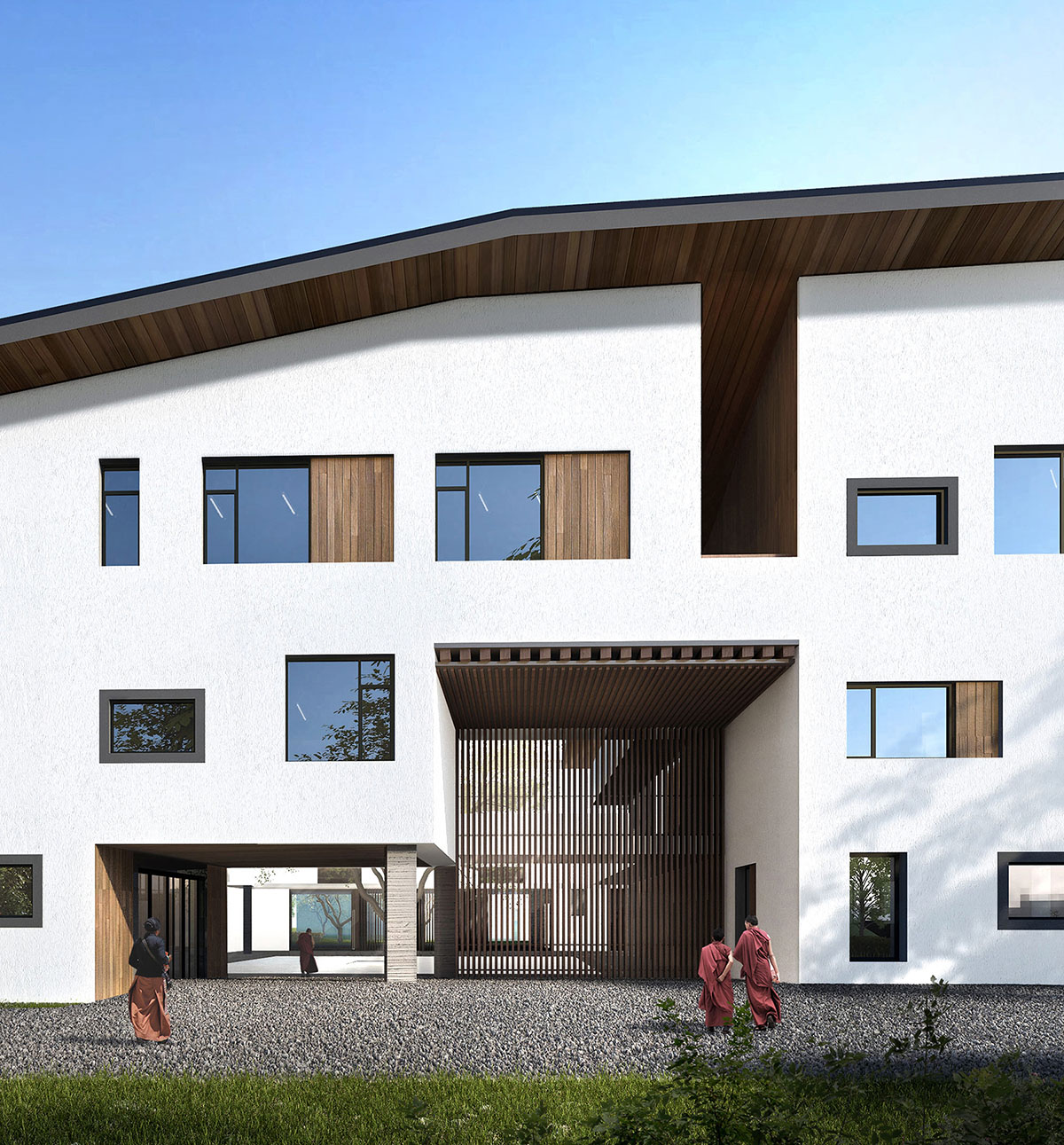
Hong Kong and Shanghai-based architecture firm EID Architecture has completed the Medog Meteorological Center (MMC) in Nyingchi prefecture of Tibet, China. The design and materiality pay tribute to the local ethnic culture, blending traditional Moinba and Lhoba architecture with modern architectural elements, creating a contemporary building sensitive to local culture and tectonic tradition.
Located along the river bend area of Yarlung Tsangpo River, the 1,854-square-metre building is situated within canyons, surrounded by mountain ranges and dense forests. The project site captures prominent view of the Namcha Barwa in the distance, while integrating with the well-preserved natural surroundings.
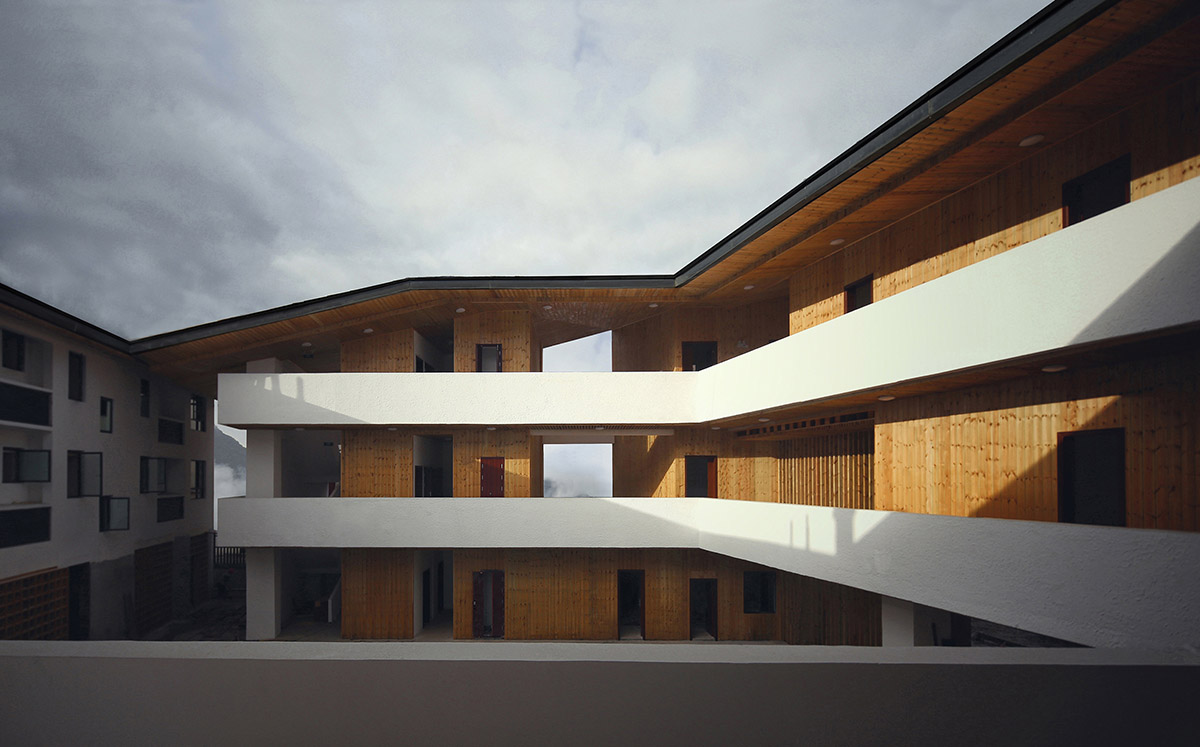
The studio explains its design approach as "although Medog is located on the Tibetan plateau, its altitude surprisingly ranges from merely 115m to 1200m maximum high, which comes with a tropical rainforest climate that causes high annual rainfalls for the area."
"The unique geomorphic features and climate not only bring Medog all-year-long rainy and humid seasons, but more importantly, results in the architectural challenges of accommodating water drainage and barrier systems that help avoid water damages for the building."

"As being one of the last counties to be reached by the highway systems in China, Medog is known as a primordial town that is hidden within the southern mountain range of Tibet, isolated from the rest of the world, both socially and culturally," the architects added.
"Due to the lack of fully developed transportation and rural location of Medog, the construction processes of the Meteorological Center became significantly challenging, in terms of aspects as undeveloped construction skills and techniques, limited numbers of heavy machinery, small selection of building materials and etc."
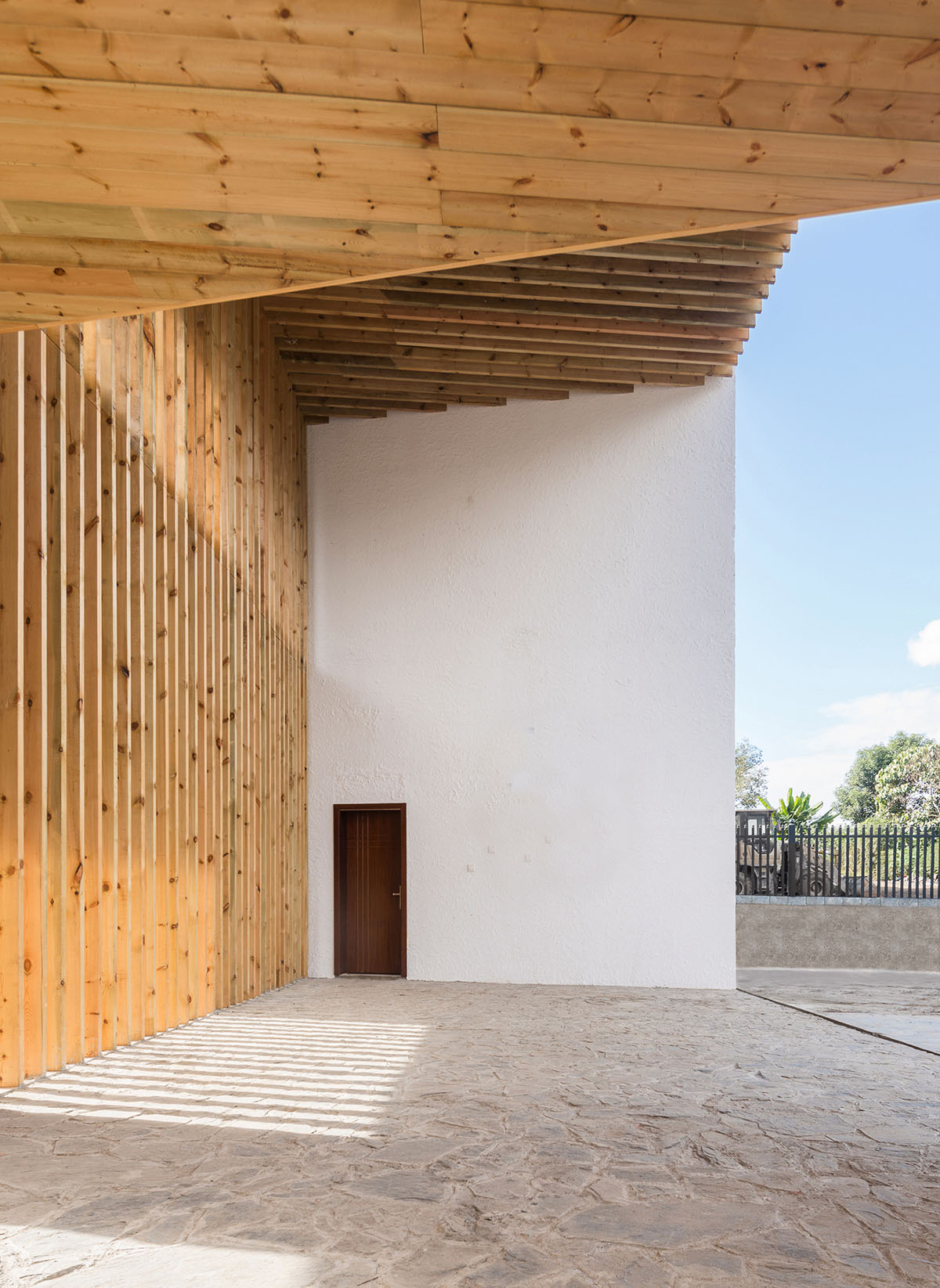
Due to this area being strictly prohibited for foreigners to visit, the architect took it as a great design opportunity, utilizing "remote intervention" as the communication method, collaborating with the local construction team to accomplish the project.
The design intends to reinvent the existing site into a multifunctional environment that accommodates both working and living uses for the new meteorological center; at the same time, achieving the development of a vernacular heritage by adapting it to contemporary architectural language.
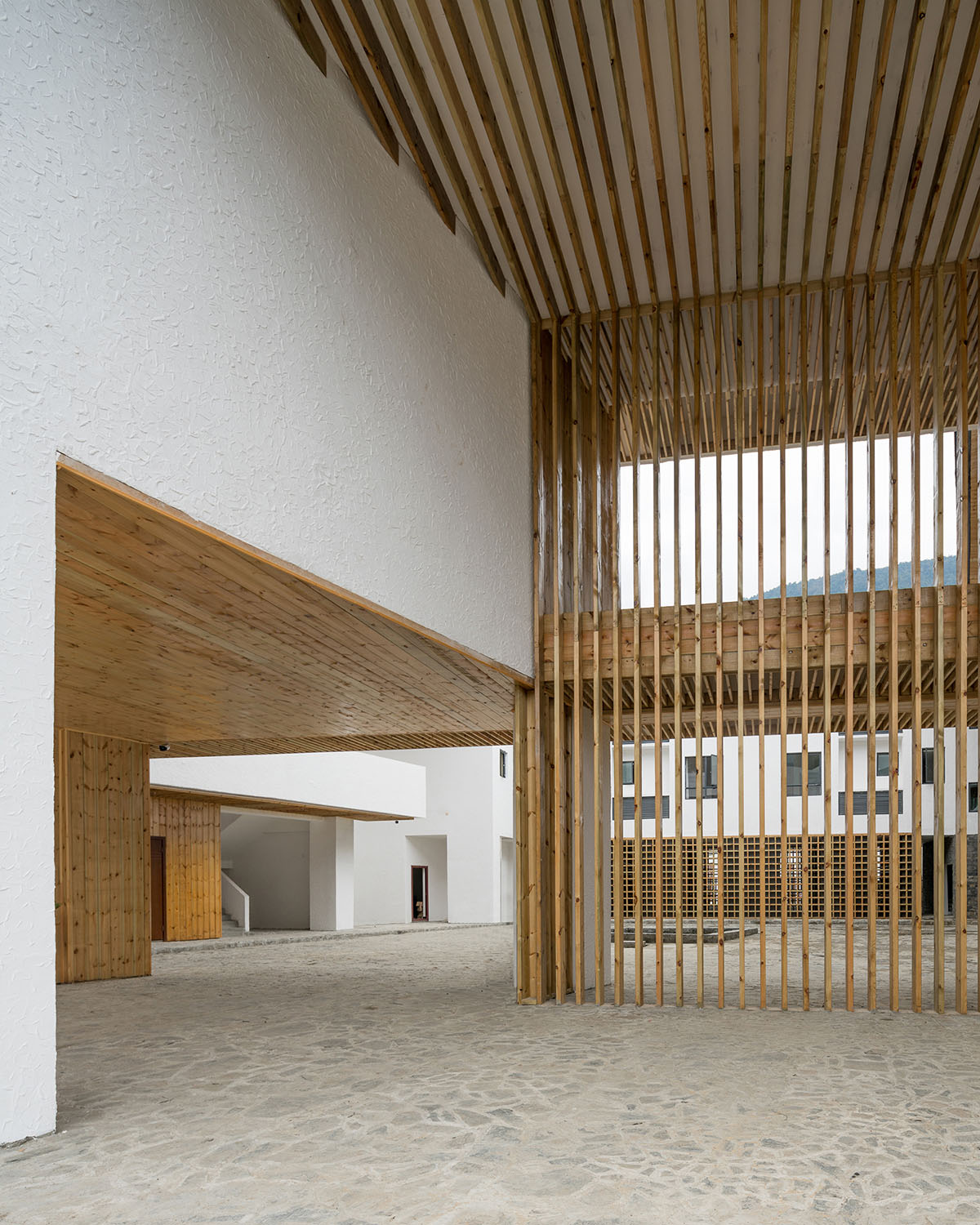
Described as "breathable architecture", the building consists of the administrative office and staff dormitory, the new meteorological center is conceived as enclosed courtyard, serving as a hybrid building for the local meteorological bureau responding to occupants’ daily routine.
The centralized organizational system accommodates different functional needs while ensuring spatial privacy. The undulating roof system that mimics the movements of rolling hills, borrows design elements from the natural surroundings, while responding to the climate need of providing drainage system.
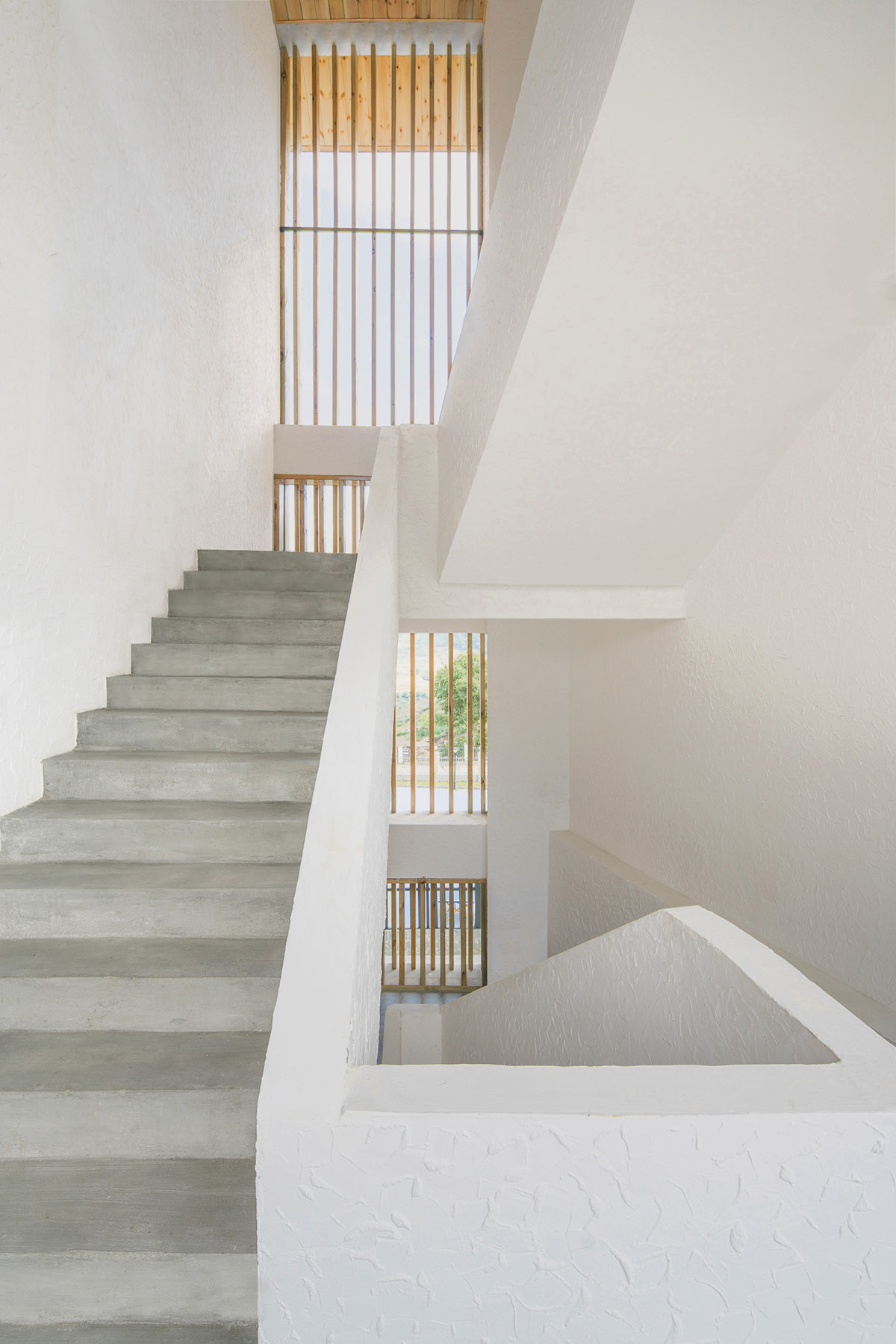
By maintaining the natural rhythm on the architectural forms, the building blends into the context without drawing attention to itself, establishing a respectful dialogue with the existing, providing a harmonious environment for better serving the community. Elevated ground level that is inherited from the vernacular architecture optimizes the pedestrian experience on the site, while at the same time, facilitating the natural ventilation system of the building.

EID Architecture created a rhythmic façade by carefully placing window elements on the building envelope. As the building is designed to be an integration of living and working space, the use of solid and void volumes optimizes the quality of natural views through responding to the occupants’ living-patterns during the day.
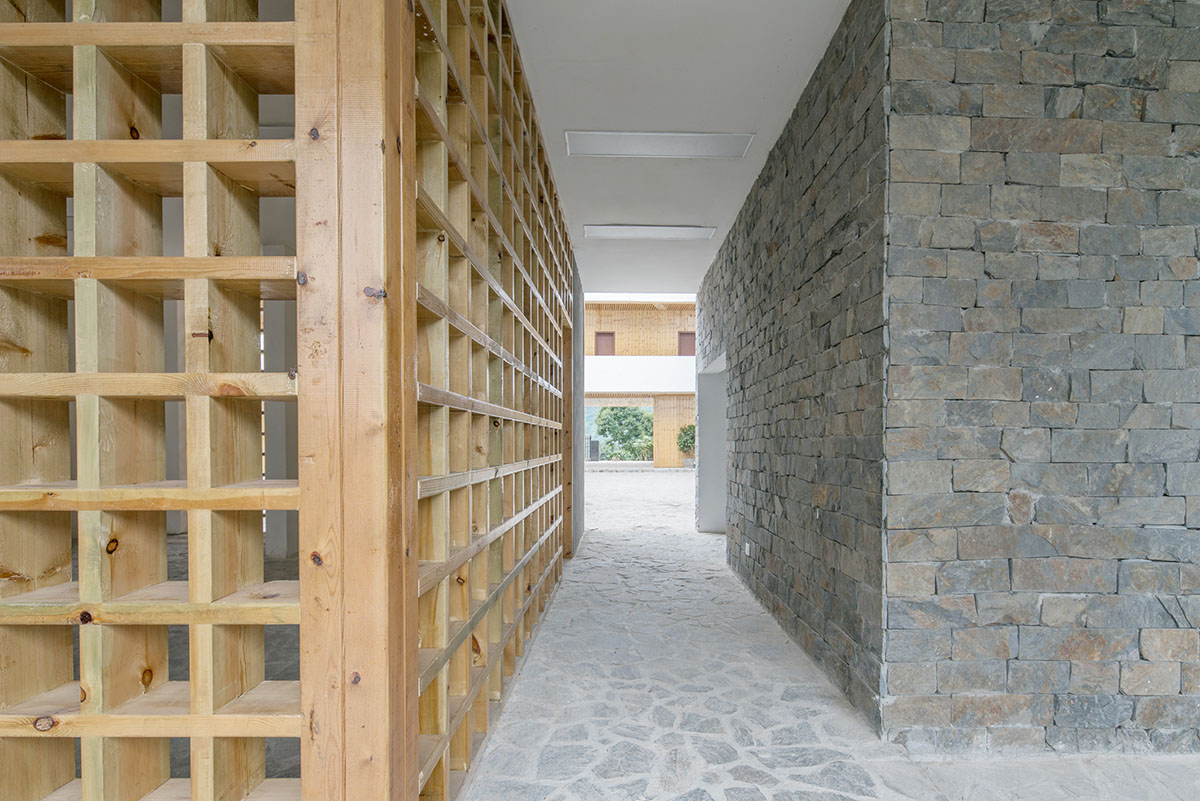
Based on the early site study, the architect learned from the local traditional architecture to accommodate environmental and cultural needs of Medog area: using local pinewood and prefabricated in situ to reduce construction cost, elevating the ground floor, providing masonry structural supports, and applying sloped roof system to overcome issues in rainy seasons.
The building façade also features a hand-craft stucco pattern, adapting to the texture and enriching its local characteristics.



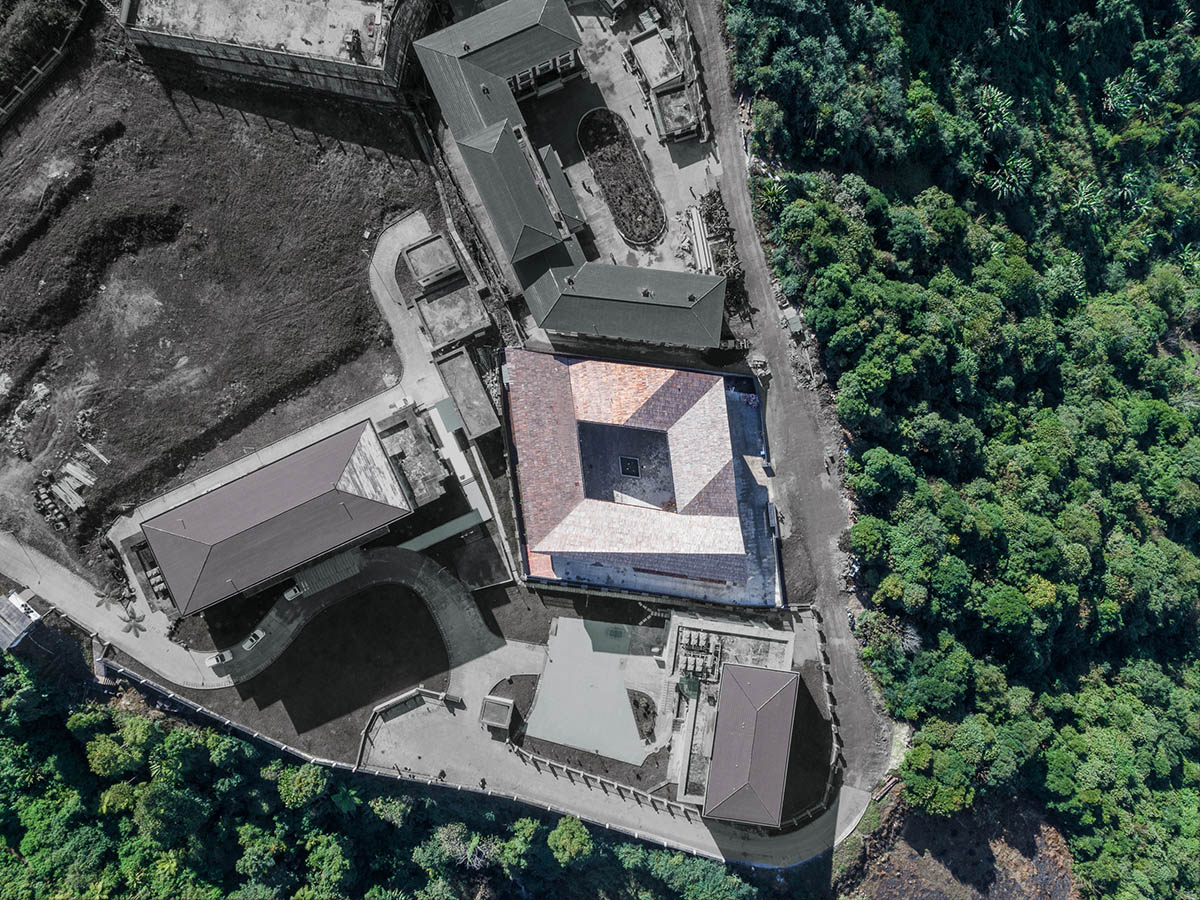
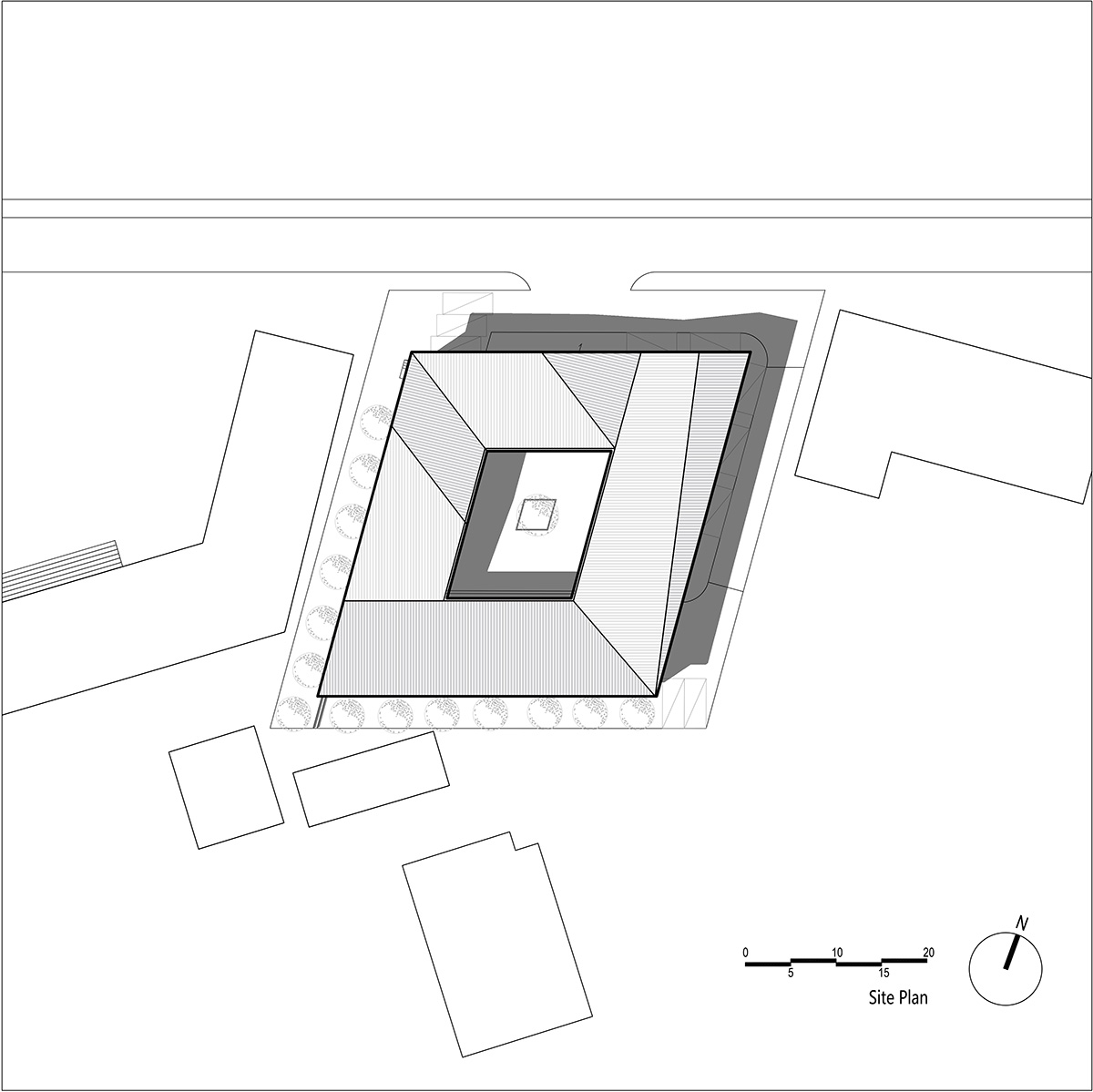
Site plan

Ground floor plan
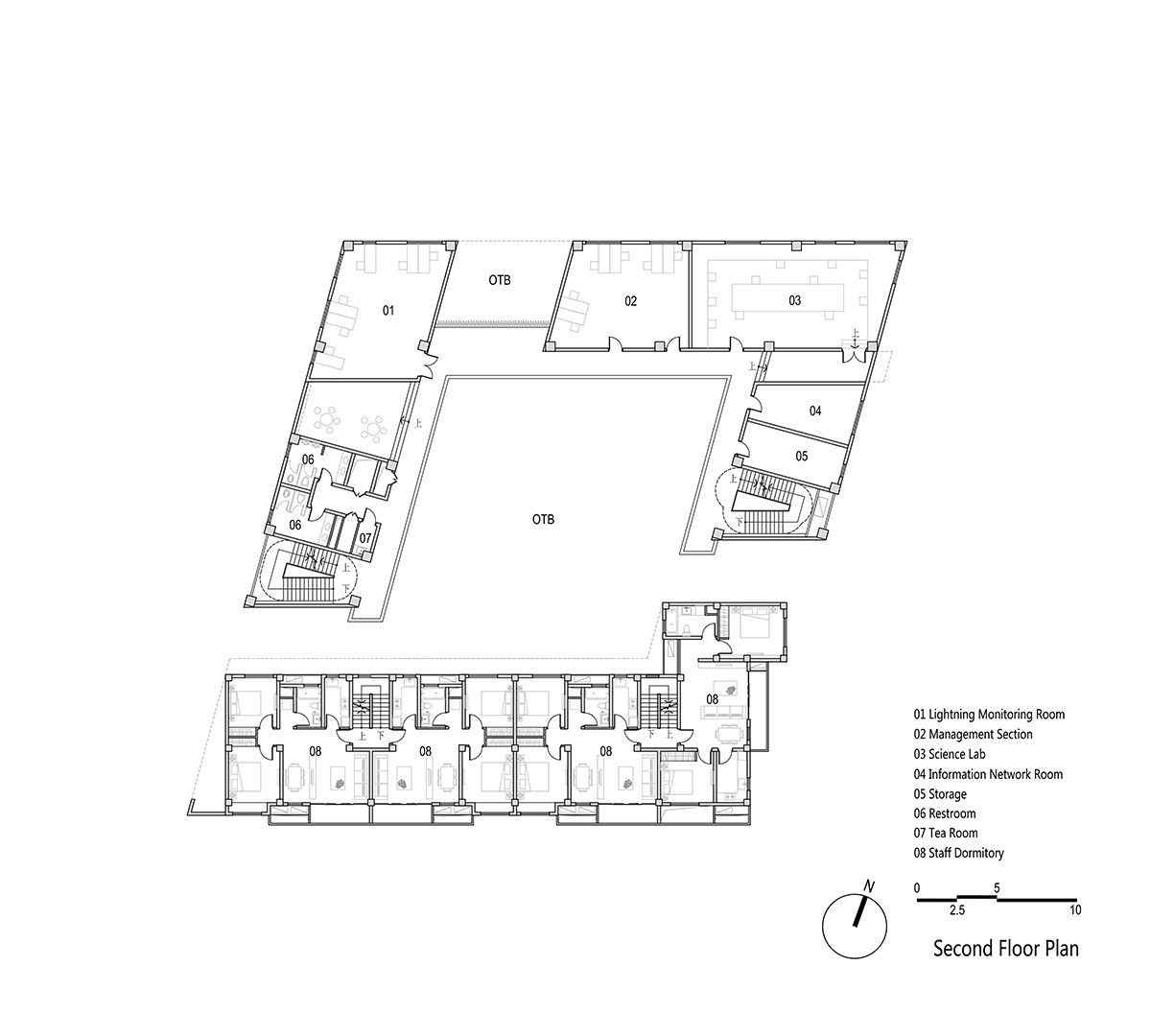
Second floor plan
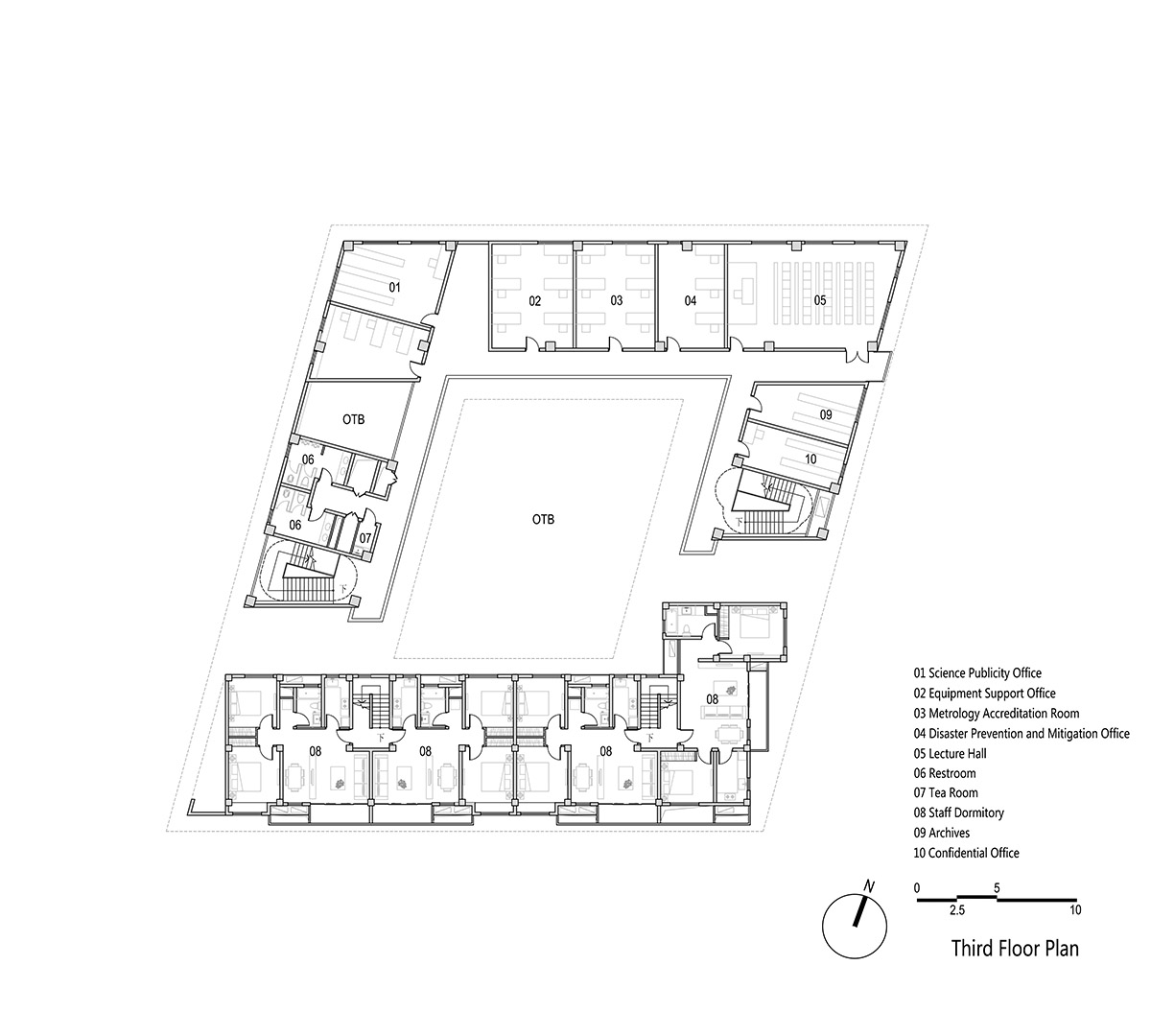
Third floor plan
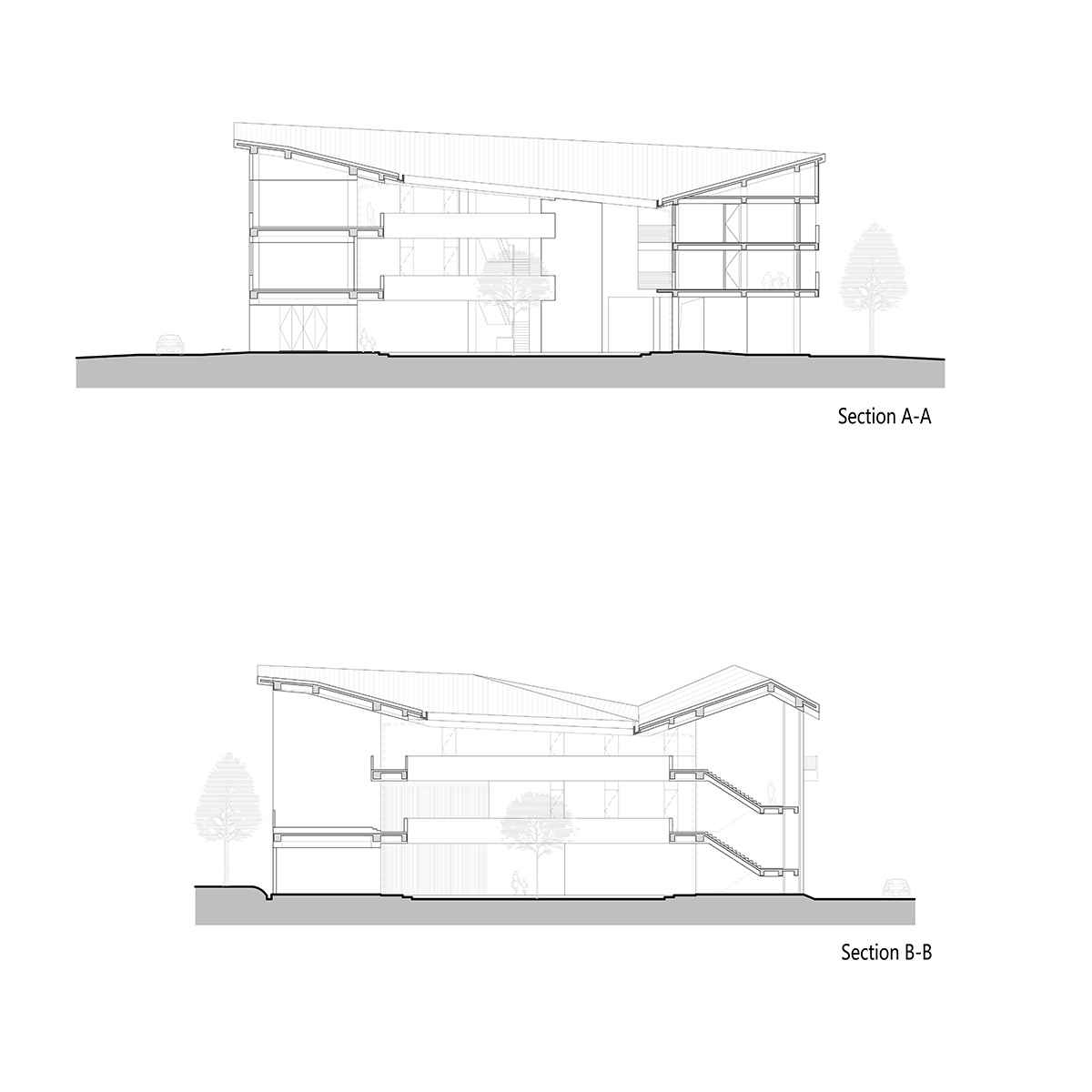
Sections
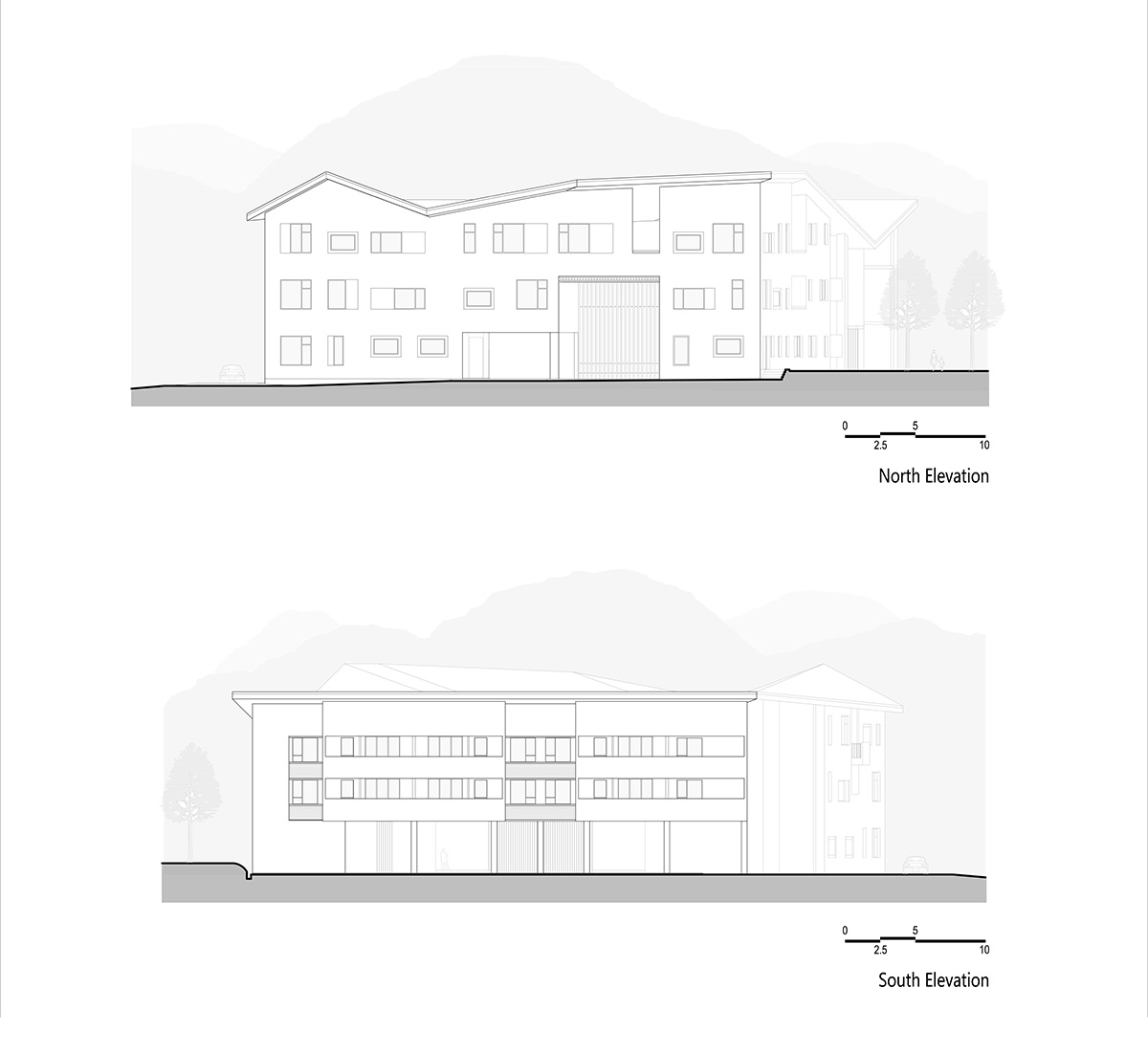
Elevations
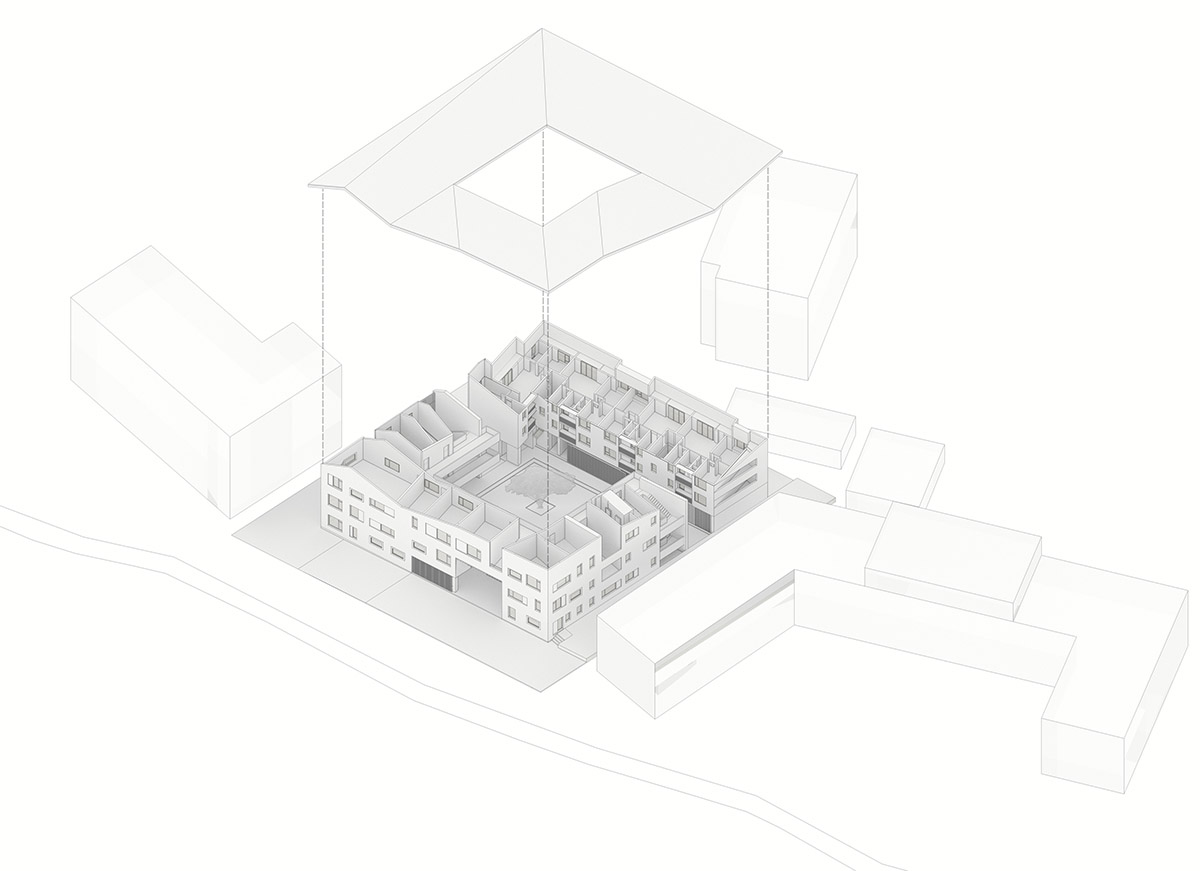
Axonometric diagram
Project facts
Location: Medog County, Tibet, China
Client: Medog Meteorological Bureau
Completion Date: 2018.02
Built Area: 1,854 sqm
Type: Office, Dormitory
Architect: EID Architecture
Design Principal: Ping Jiang, AIA
Design Team: Sean Lu, Tina Fang, Yun Gong, Sean Zhong
Architect of Record/M&E Consultant/Structural Engineer: Tibet Helin Architectural Design Co., Ltd.
All images © CreatAR
> via EID Architecture
